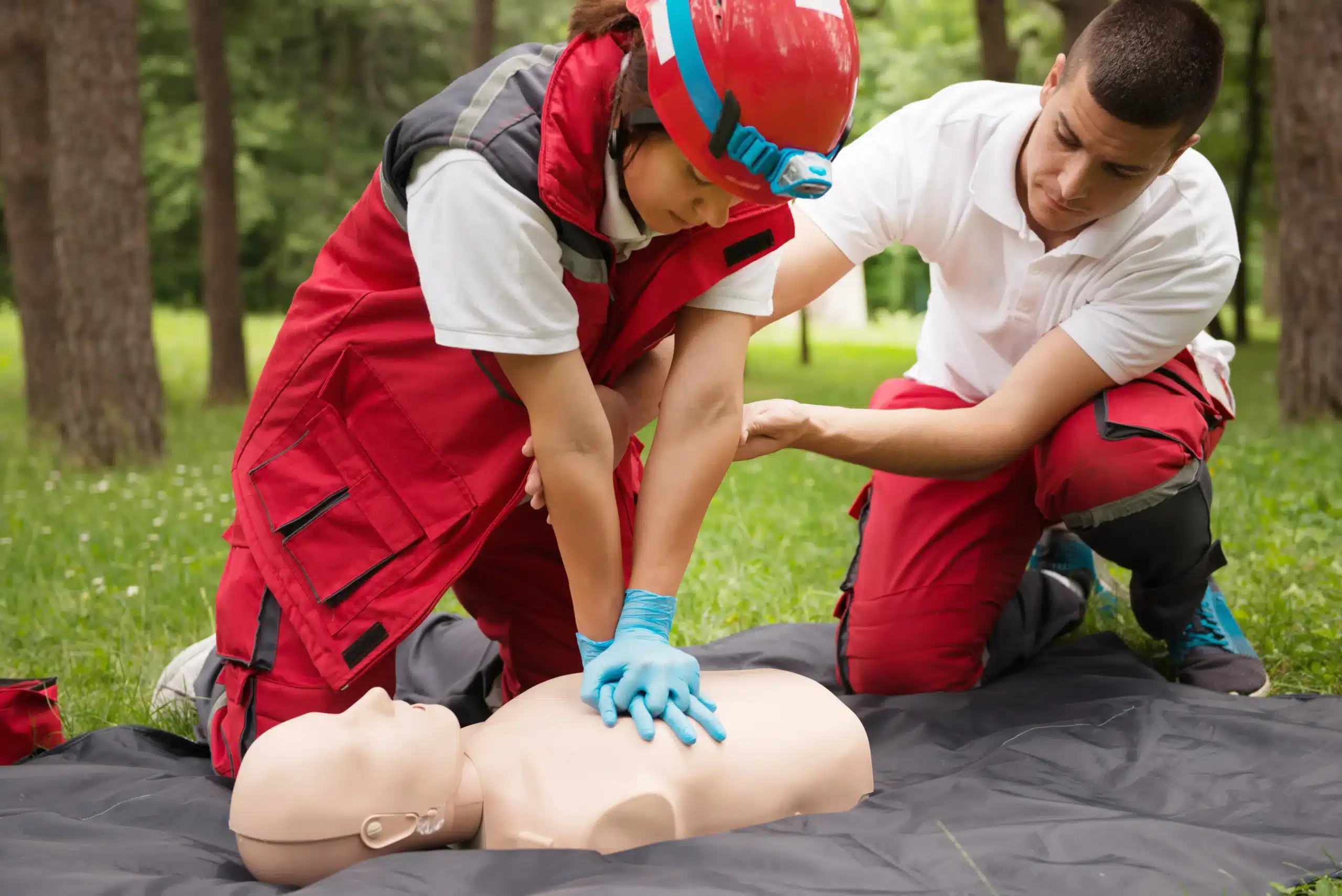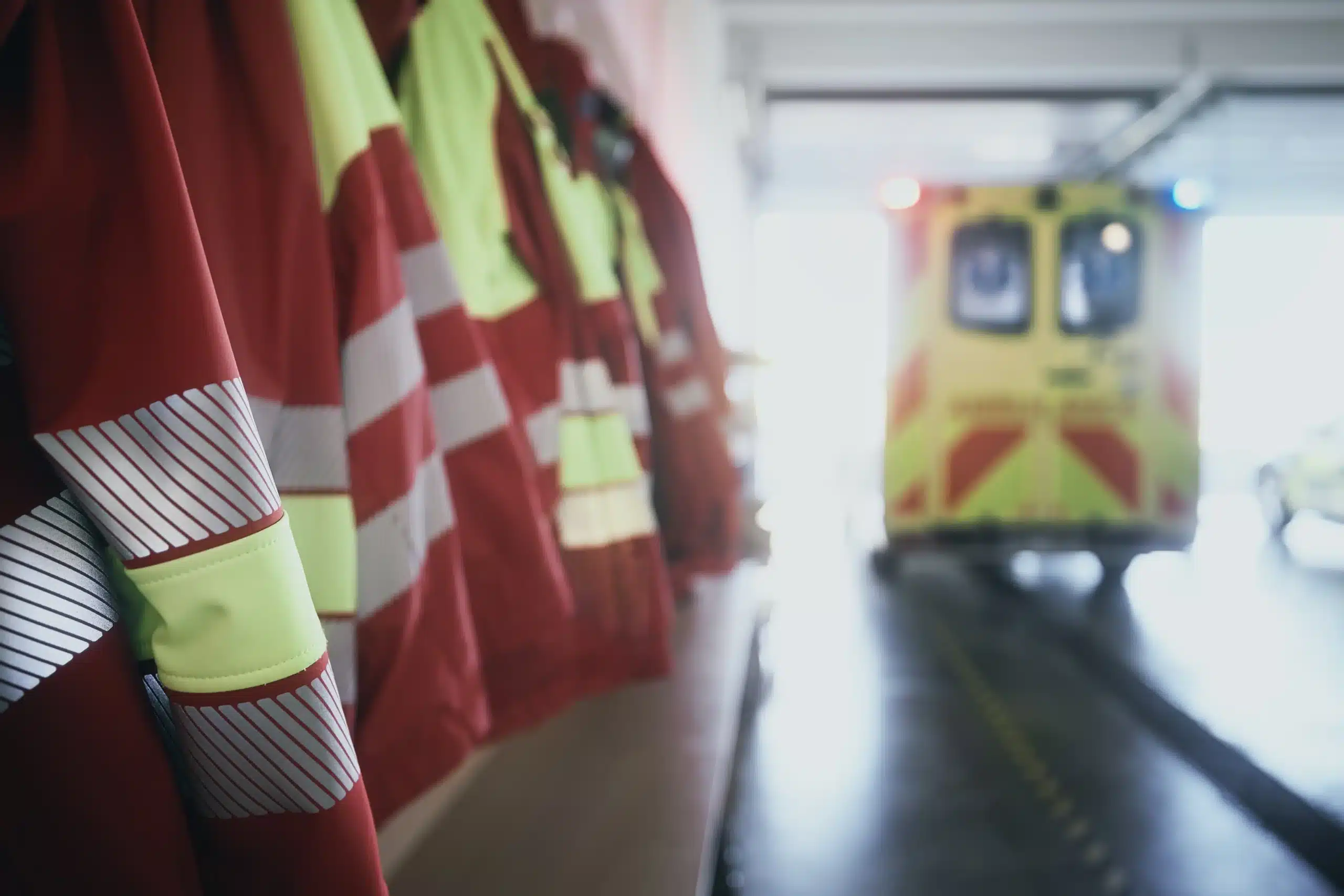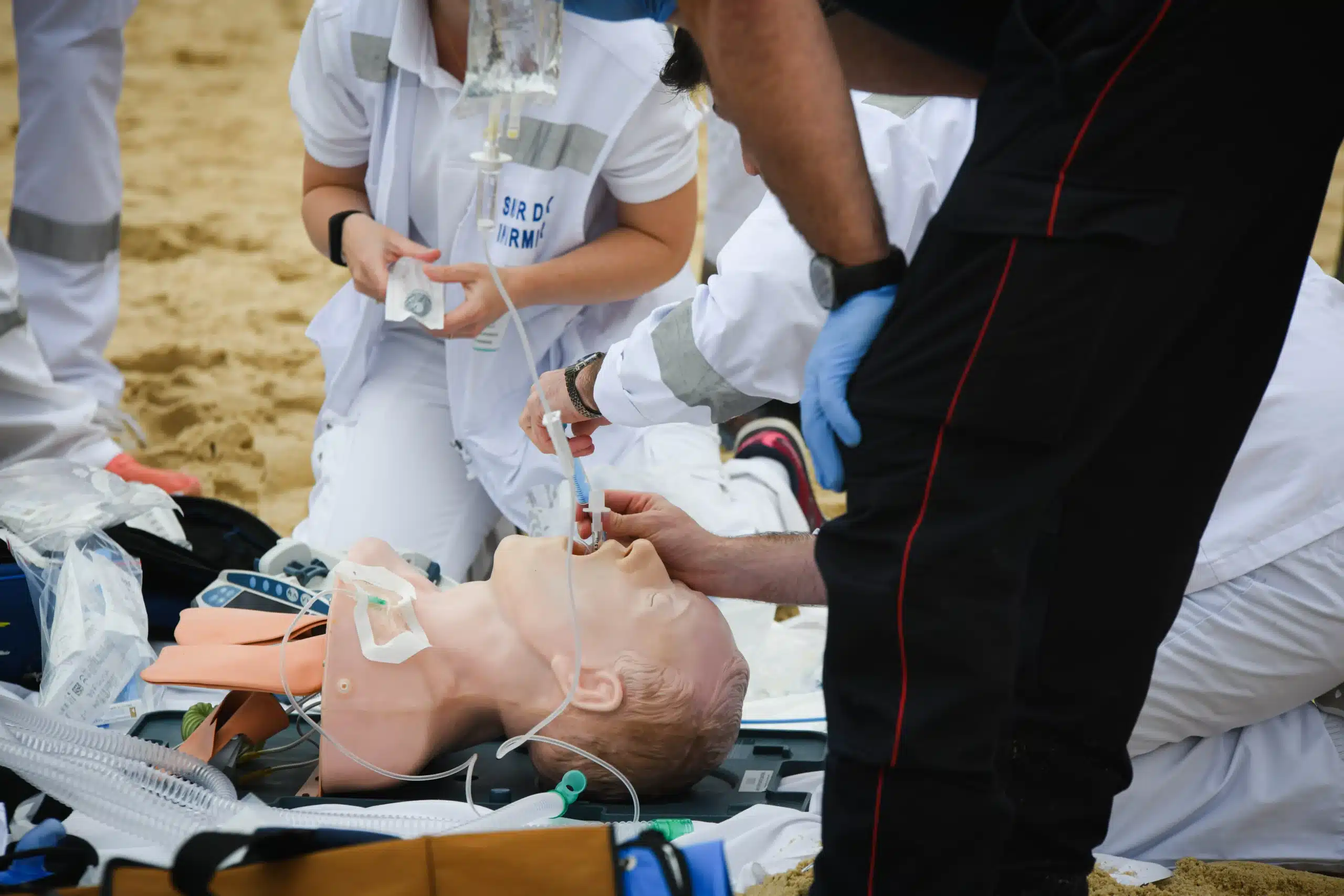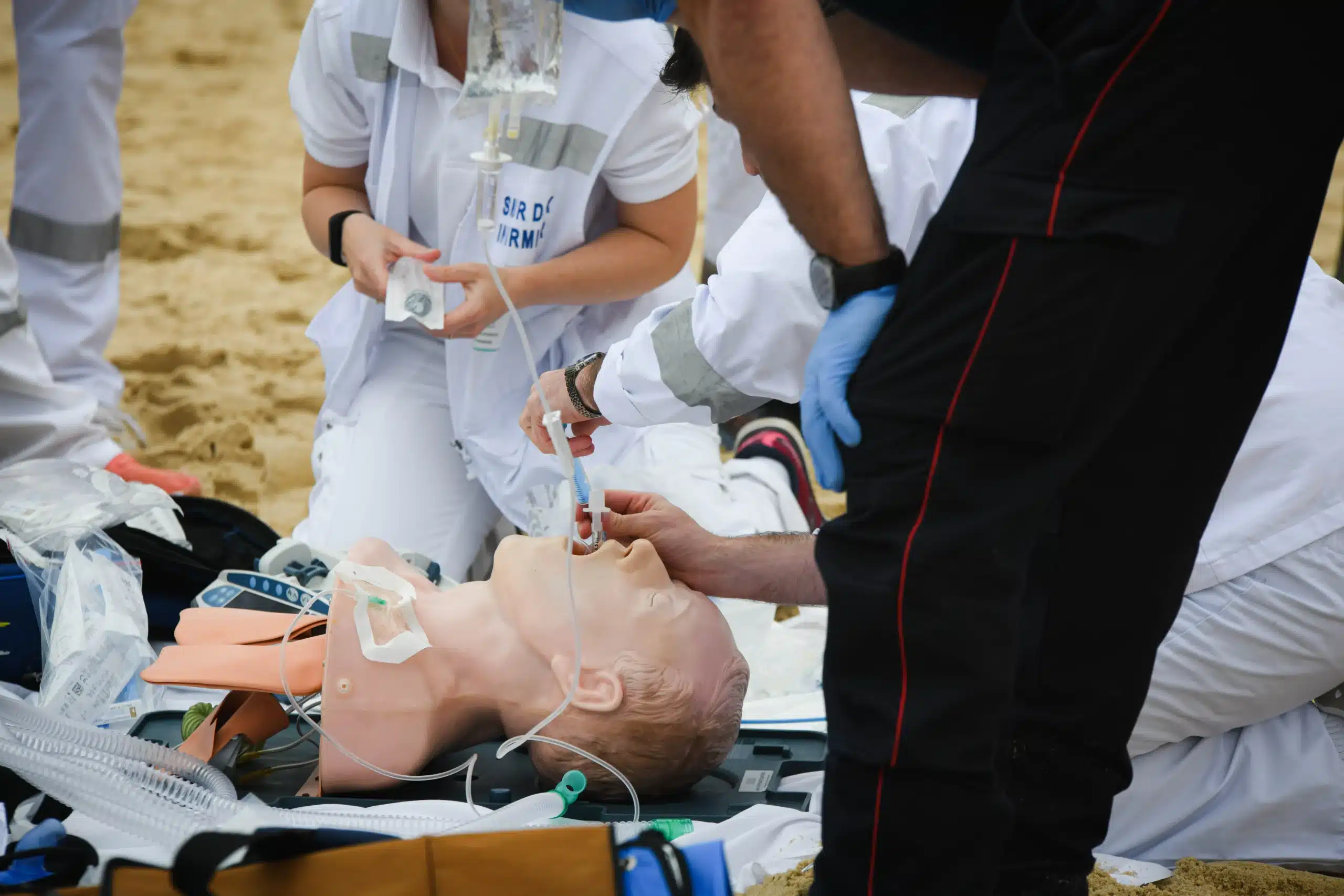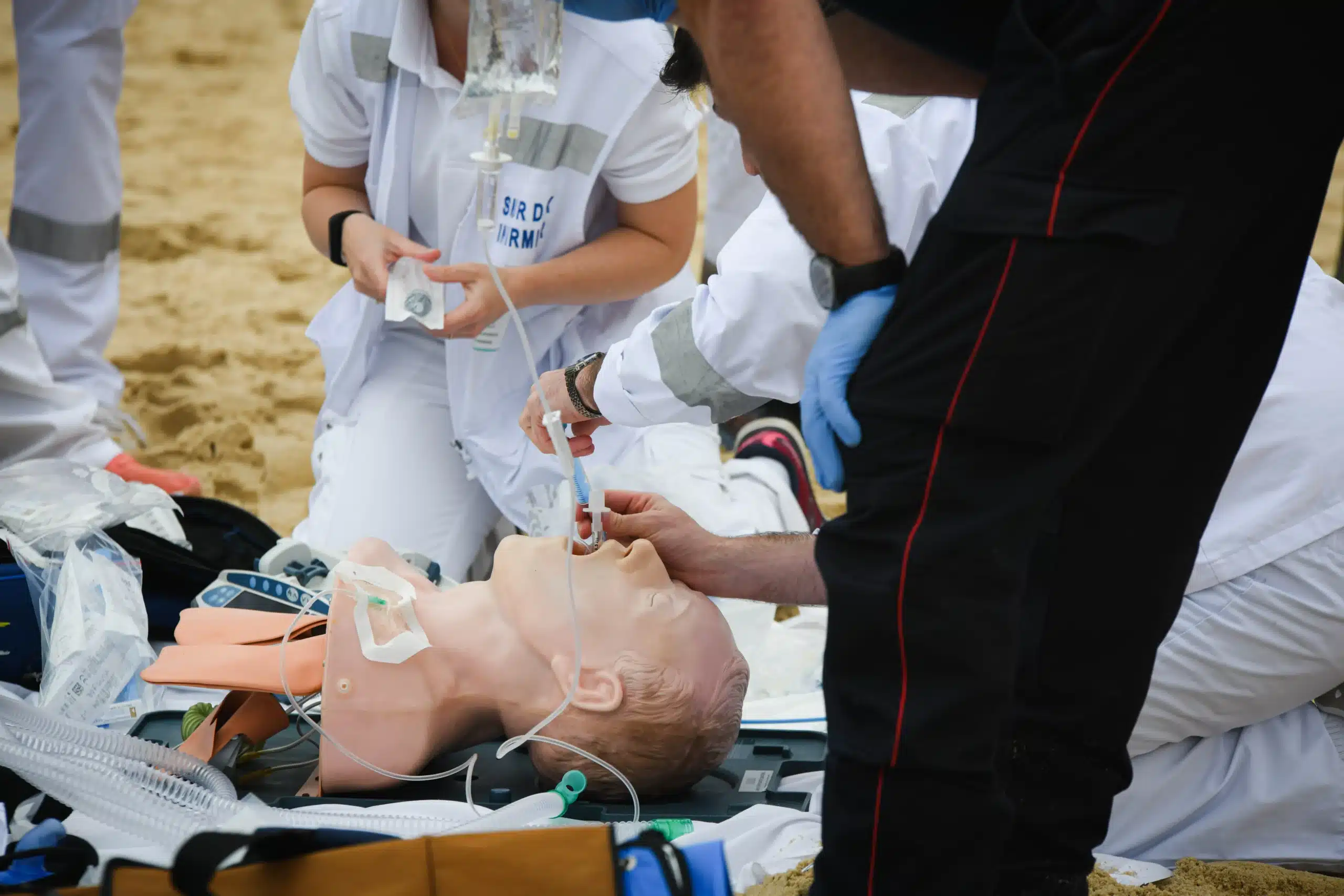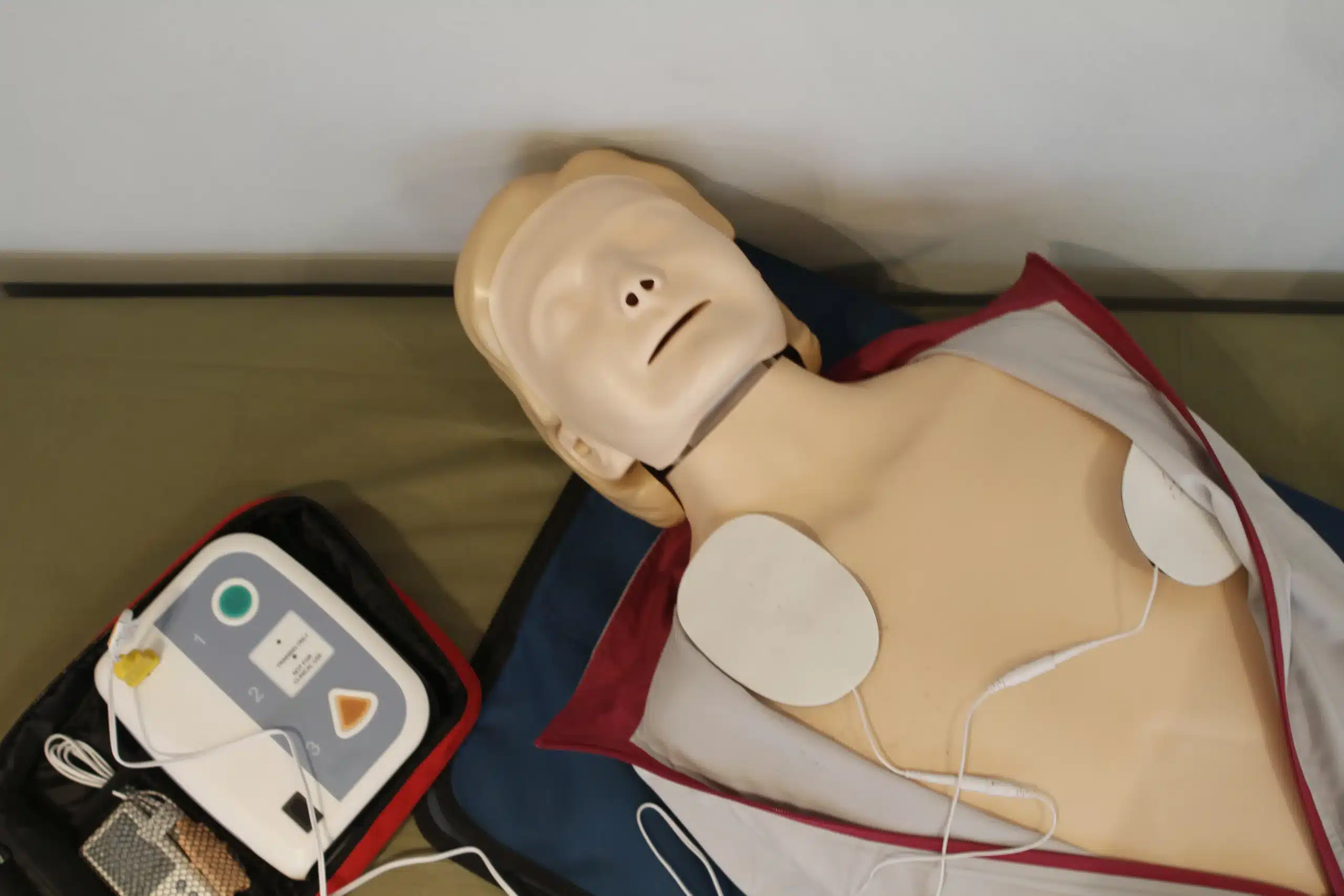Your BLS certification is more than just a piece of paper; it’s a testament to your commitment to providing critical care in emergency situations. As your certification expiration date approaches, finding a reliable and convenient “BLS renewal near me” becomes a priority. This guide is designed to simplify the BLS renewal process, offering practical advice and helpful resources to ensure you’re prepared for recertification. We’ll cover the key aspects of BLS renewal, including understanding the requirements, exploring different course options, and choosing a reputable provider. We’ll also discuss the importance of staying current with the latest guidelines and offer tips for a smooth and successful renewal experience.
Key Takeaways
- BLS skills are essential for everyone: From healthcare professionals to everyday individuals, having current BLS training empowers you to respond effectively in medical emergencies.
- Choose the right BLS renewal format: Online, in-person, and blended learning options offer flexibility for different learning styles and schedules. Select an accredited provider like Pleasanton CPR Classes for a high-quality experience.
- Affordable BLS renewal is within reach: Compare costs and look for providers like Pleasanton CPR Classes that offer a low price guarantee and convenient class schedules.
What is BLS & Why Renew?
Basic Life Support (BLS) comprises the essential life-saving techniques used in medical emergencies. It’s the foundation for healthcare professionals and anyone who might find themselves responding to a crisis. BLS training covers core skills like CPR (Cardiopulmonary Resuscitation), using an AED (Automated External Defibrillator), and airway management. These skills are crucial for responding effectively to cardiac arrest, choking, or other situations where quick action can save a life. Learn more about our BLS classes on our website. We also offer CPR and First-Aid certification courses for those looking to expand their skills.
Why is renewing your BLS certification so important? BLS certification is typically valid for two years, and there’s no grace period after it expires. This means you must complete a renewal course and exam before your certification lapses to maintain your credentials. Many healthcare jobs, along with positions for lifeguards and fitness instructors, require current BLS certification to ensure they can provide effective emergency care. For group renewals, we offer discounts to make the process more affordable. We also provide RQI classes for specialized resuscitation training. Renewing your BLS certification isn’t just a box to check; it’s an investment in your ability to confidently and effectively respond to emergencies. Regularly refreshing your skills ensures you’re up-to-date on the latest guidelines and techniques, which can significantly impact the outcome of a medical emergency. Take advantage of our low price guarantee for the best value on your renewal training.
Find the Best BLS Renewal Courses Near You
Finding the right BLS renewal course depends on several factors, including your learning style, schedule, and budget. Let’s explore some key considerations to help you make the best choice.
Online vs. In-Person
Deciding between online and in-person BLS renewal is a personal choice. Online courses offer flexibility and convenience, allowing you to renew your BLS certification from anywhere at your own pace. This can be especially helpful for those with busy schedules or limited access to in-person training. Plus, some online courses offer continuing education credits, saving you time and potential expenses. However, in-person classes provide hands-on practice and direct interaction with an instructor, which can be beneficial for those who prefer a more interactive learning experience. Many providers offer both options, so consider what works best for your learning style and circumstances. For more insights on online BLS courses, check out this helpful resource.
Top BLS Renewal Providers
Several reputable organizations offer BLS renewal courses. Here are a few of the most recognized providers:
American Heart Association (AHA)
The American Heart Association (AHA) is a leading authority in CPR and emergency cardiovascular care. They offer various BLS renewal options, including online courses and in-person classes. AHA certification is widely accepted and respected in the healthcare field.
American Red Cross
The American Red Cross also provides BLS renewal courses. While they are another well-known option, verifying whether their certification meets your specific workplace requirements is essential.
National Safety Council (NSC)
The National Safety Council offers BLS certification, focusing on practical skills and real-life scenarios. Their training programs often cater to workplace safety needs.
Health & Safety Institute (HSI)
HSI provides a range of BLS courses designed for both healthcare professionals and the general public. They offer various learning formats to suit different preferences.
ProTrainings
ProTrainings offers various CPR and BLS training options and has many customer reviews. Check their website for specific course offerings and availability in your area.
Pleasanton CPR Classes
Pleasanton CPR Classes offers AHA-certified BLS courses with a focus on customer satisfaction and a low-price guarantee. They provide convenient daily classes, making it easier to fit renewal into your schedule. Serving Pleasanton, Dublin, and San Ramon, they are a local option for those in the Tri-Valley area.
BLS Renewal Costs & Value
Getting recertified in Basic Life Support (BLS) is an investment in your skills and career. Understanding the costs involved helps you budget effectively and find the best value. Let’s break down typical BLS renewal expenses and how to make informed decisions.
Average Costs
For most healthcare providers, BLS renewal costs average around $120. This usually covers the online portion of the course, the in-person skills check, and your official certification card. For example, Berkeley CPR Classes offers a comprehensive BLS course for about $120, including everything you need to get recertified. Keep in mind that prices can vary slightly based on location and the training center.
Additional Fees
While the average cost provides a good starting point, it’s wise to ask about any potential extra fees. Some providers might charge for things like study materials, same-day certification processing, or expedited card shipping. Inquiring about these upfront helps avoid surprises. Many training centers offer group discounts, which can significantly lower the per-person cost if you’re renewing with colleagues.
Low Price Guarantees
Pleasanton CPR Classes understands the importance of affordable training. We’re committed to offering competitive pricing and a low price guarantee to ensure you’re getting excellent value. Our goal is to make BLS renewal accessible, offering courses daily at prices that won’t break the bank. We believe essential, life-saving skills should be within everyone’s reach.
Choose the Right BLS Renewal Format
Finding the right BLS renewal format depends on your learning style, schedule, and budget. Let’s break down online, in-person, and blended learning options so you can make the best choice for your BLS recertification.
Online Course Benefits
Online BLS renewal courses offer incredible flexibility. You can study at your own pace, fitting the training around your busy schedule. This format is perfect for those juggling work, family, or other commitments. Many online courses are self-paced, meaning you can complete the material whenever and wherever you have internet access. Plus, online BLS renewal courses often include all your study materials with your purchase, streamlining the process. If you’re looking to earn continuing education credits, some online BLS courses offer CME/CMU credits along with your certification, saving you time and money.
In-Person Training Advantages
While online learning offers convenience, in-person BLS training provides valuable hands-on experience. In a classroom setting, you’ll receive real-time feedback from certified instructors, ensuring you master the necessary skills. Pleasanton CPR Classes offers in-person BLS training, providing a structured learning environment and the opportunity to practice techniques on mannequins. This direct interaction can boost your confidence and prepare you for real-world emergency situations. These classes are designed to equip you with the skills to respond effectively and potentially save lives.
Blended Learning
Blended learning combines online convenience with hands-on practice. You’ll complete the coursework online at your own speed, then attend an in-person skills session to demonstrate your proficiency. This approach offers the flexibility of online learning with the focused practice of traditional classes. Pleasanton CPR Classes offers this blended learning approach, making BLS certification straightforward. Many providers also offer streamlined packages that include the online portion, skills testing, and your certification card all in one place. This simplifies the renewal process and ensures you have everything you need for recertification.
BLS Renewal Prerequisites & Eligibility
Understanding the requirements for BLS renewal ensures a smooth and efficient recertification process. Let’s break down the key prerequisites and eligibility criteria.
Current Certification Requirements
Generally, renewing your American Heart Association (AHA) BLS certification is straightforward, especially if your current certification is still valid. Make sure you know your expiration date. If it’s past the expiration date, some institutions might require you to take the full BLS Provider course again instead of just the renewal. Keeping your certification current simplifies the process.
Required Documentation
To renew your BLS certification, you’ll need documentation of your current credentials. This typically includes a copy of your current BLS provider card or certificate. You’ll also need to successfully complete all the requirements of the BLS renewal course, including any online modules, skills practice, and a written exam.
Expired Certification Options
Even if your BLS certification has expired, you still have options. You can usually take a renewal course up to 30 days after the expiration date. Some providers, like Pleasanton CPR Classes, may offer grace periods extending up to 60 days after expiration. Check with your chosen provider for their specific policy. If too much time has passed, you might need to retake the full BLS provider course. Contacting Pleasanton CPR Classes directly can clarify the best path forward.
Evaluate BLS Renewal Course Quality
Choosing a high-quality BLS renewal course is crucial for mastering life-saving skills. Here’s what to consider when evaluating your options:
Accreditation & Instructor Qualifications
Look for courses accredited by a reputable organization like the American Heart Association. AHA accreditation ensures the course meets their stringent standards for training in life-saving techniques. Equally important are the instructor’s qualifications. Choose a course led by experienced, certified instructors who can create a supportive learning environment and provide valuable real-world insights. Pleasanton CPR Classes, for example, is known for its team of highly skilled and AHA-certified instructors.
Course Content & Updates
BLS guidelines are regularly updated, so your renewal course should reflect the latest science and best practices. Carefully review the course content to ensure it aligns with current AHA standards and includes the most recent changes. Check if training materials are included; many providers offer comprehensive resources. Pleasanton CPR Classes often includes materials as part of their course fees. Staying updated with the latest guidelines benefits both healthcare providers and the community they serve.
Find Reviews & Testimonials
Reading reviews and testimonials from past students offers valuable, unbiased perspectives. These firsthand accounts can give you a sense of the course’s quality, the instructor’s teaching style, and the overall learning experience. Positive feedback can increase your confidence in choosing a particular provider, so take the time to research and see what others have to say. Look for comments that mention the quality of instruction, the helpfulness of the materials, and the overall experience.
Prepare for BLS Renewal Success
Getting ready for your BLS renewal doesn’t have to be stressful. With a little preparation, you can breeze through the process. This section covers what you can expect during your BLS renewal, offers tips for a smooth experience, and helps you overcome common challenges.
What to Expect
BLS renewal is generally a straightforward process, focusing on reinforcing the essential skills and knowledge you already possess. Expect a review of core concepts like CPR, AED use, and basic life support techniques. Many BLS renewal courses, like those offered by Pleasanton CPR Classes, include training materials, so check with your provider to see what’s covered. Knowing what to expect can make the entire experience much less daunting.
Tips for Smooth Renewal
A few simple steps can make your BLS renewal even easier. First, consider your learning style. Do you prefer the flexibility of online learning or the hands-on experience of an in-person class? Next, research different providers and ensure they offer American Heart Association (AHA) certification, which is widely recognized and accepted. Finally, compare costs, factoring in any extra fees and asking about potential group discounts. Evaluating your options upfront will save you time and ensure you find the perfect course. If you’re looking for ways to streamline your continuing education, consider a course that offers CME/CMU credits along with your BLS renewal certification.
Overcome Common Challenges
One of the most common challenges is simply keeping track of your certification expiration date. Set a reminder a few months in advance, giving yourself plenty of time to find a course and schedule your renewal. Healthcare providers must ensure their BLS certification is current to continue contributing effectively to emergency care. If your certification has expired, contact your employer or the certifying organization to determine the necessary steps for reinstatement. You might need to retake the full BLS provider course instead of just the renewal. Addressing these potential hurdles head-on will help you maintain your BLS certification without interruption.
Related Articles
- BLS Certification in Dublin: A Practical Guide – Pleasanton CPR Classes
- BLS for Healthcare Providers in Dublin: A Complete Guide – Pleasanton CPR Classes
- Basic Life Support (BLS) in Pleasanton: Your Complete Guide
- BLS Renewal in San Ramon: A Guide to Certification
- BLS Classes in Dublin: A Comprehensive Guide
Frequently Asked Questions
How often do I need to renew my BLS certification? BLS certification is typically valid for two years. It’s essential to renew before your current certification expires to maintain your credentials and comply with workplace requirements.
What’s the difference between online and in-person BLS renewal courses? Online courses offer flexibility, allowing you to learn at your own pace and from anywhere with internet access. In-person classes provide hands-on practice and direct interaction with an instructor. Consider your learning style and schedule when deciding which format is best for you.
How much does BLS renewal typically cost? The average cost of BLS renewal is around $120, which usually covers the course materials, skills check, and certification card. However, prices can vary depending on the provider and your location. Be sure to ask about potential additional fees and group discounts.
What if my BLS certification has already expired? If your certification has recently expired, you might still be eligible to take a renewal course. Contact your chosen training provider to determine their policy on expired certifications. If too much time has passed, you might need to retake the full BLS provider course.
How can I find a high-quality BLS renewal course? Look for courses accredited by a reputable organization like the American Heart Association (AHA). Check the instructor’s qualifications and ensure the course content aligns with the latest AHA guidelines. Reading reviews and testimonials from previous students can also give you valuable insights into the quality of the course.
